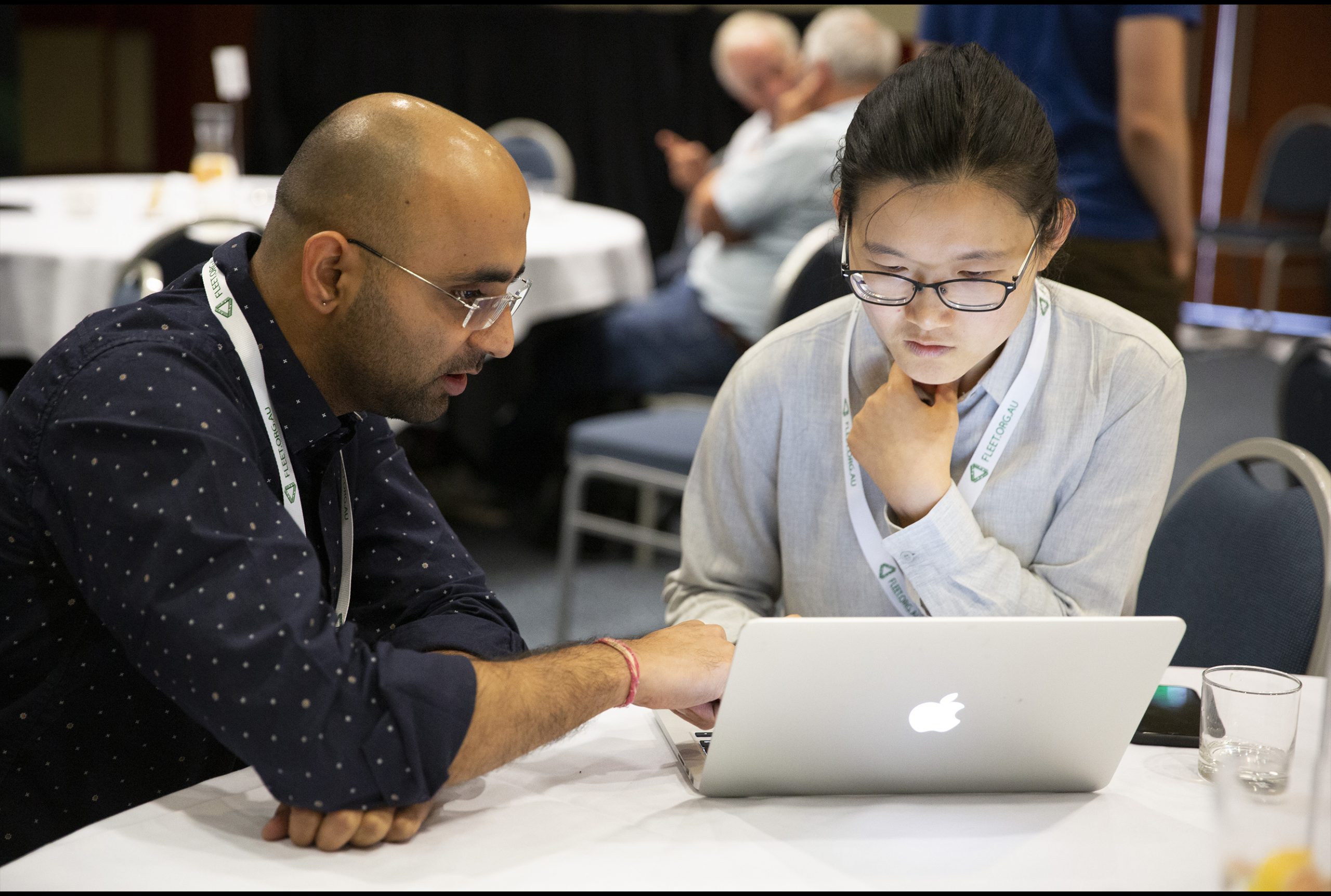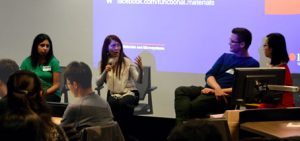Engage
Mentoring
FLEET provides mentoring to personnel across all cohorts (HDR, ECR, mid-career) with regard to induction, career advancement and planning, equity and diversity, professional development, entrepreneurship, and research leadership skills.
Two mentoring models are provided: (1) individual, goal-oriented mentoring, where members are individually matched to a mentor within FLEET (examples of goals include applications for promotion, grantsmanship, career advice); (2) group mentoring at FLEET annual Workshops on topics such as manuscript preparation for high-impact journals, scientific presentation, and research leadership.
Launched in November 2017, FLEET members can access a number of mentoring programs, including:
FLEET mentoring programs
Mentoring News
Women are under-represented in science, particularly in physics. In this regard FLEET is no exception. We are taking steps to improve this. Research confirms that diverse teams do better science. We know that by improving our performance with respect to gender equity and diversity, we are not only doing what’s fair, we will also improve the effectiveness of our research …
Jobs in many of the fastest-growing industries require science, technology, engineering and mathematics (STEM) skilled professionals. The Young Researchers Forum, aka YouRforum was created by FLEET COO Dr Tich-Lam Nguyen (then at the Monash Centre for Atomically Thin Materials) to provide opportunities for young STEM researchers to network, discuss research ideas and practice their professional skills. The program‘s ‘Got PhD, …
Two significant, long-term partnerships will progress FLEET’s equity goals as well as supporting change in the Australian STEM community. FLEET was pleased to be a sponsor for this year’s annual MAGIC mentoring workshop, which provides mentoring and skills development for early-career female and gender-diverse researchers in maths and physical science. FLEET’s three-year partnership with Mentoring and Guidance in Careers (MAGIC) …
FLEET had a team of three researchers at Science meets Parliament (SMP) in November, talking to parliamentarians and other scientists from around the country, and perfecting the art of pitching to politicians. FLEET’s gun team were: Hareem Khan (RMIT), Oliver Stockdale (UQ) and Semonti Bhattacharyya (Monash). Science Meets Parliament is an annual meeting of Australia’s policy-makers with leading and emerging …
Welcoming new FLEET committee Chairs: Jeff Davis (Swinburne University of Technology) Equity and Diversity Committee Meera Parish (Monash Science) Outreach Jared Cole (RMIT University) Education and Training Torben Daeneke (RMIT) Industry relations David Cortie (University of Wollongong) Communications Thanks in particular to AIs Torben Daeneke and David Cortie for taking on these extra responsibilities. And huge thanks to the outgoing …
FLEET tops up external funding to build leadership skills Two of FLEET’s six strategic priorities are developing the next generation of science leaders, and fostering equity and diversity in STEM. Establishing career support initiatives for women in FLEET is an important milestone towards achieving each of these goals. FLEET will provide an environment for our early-career women to thrive and …







